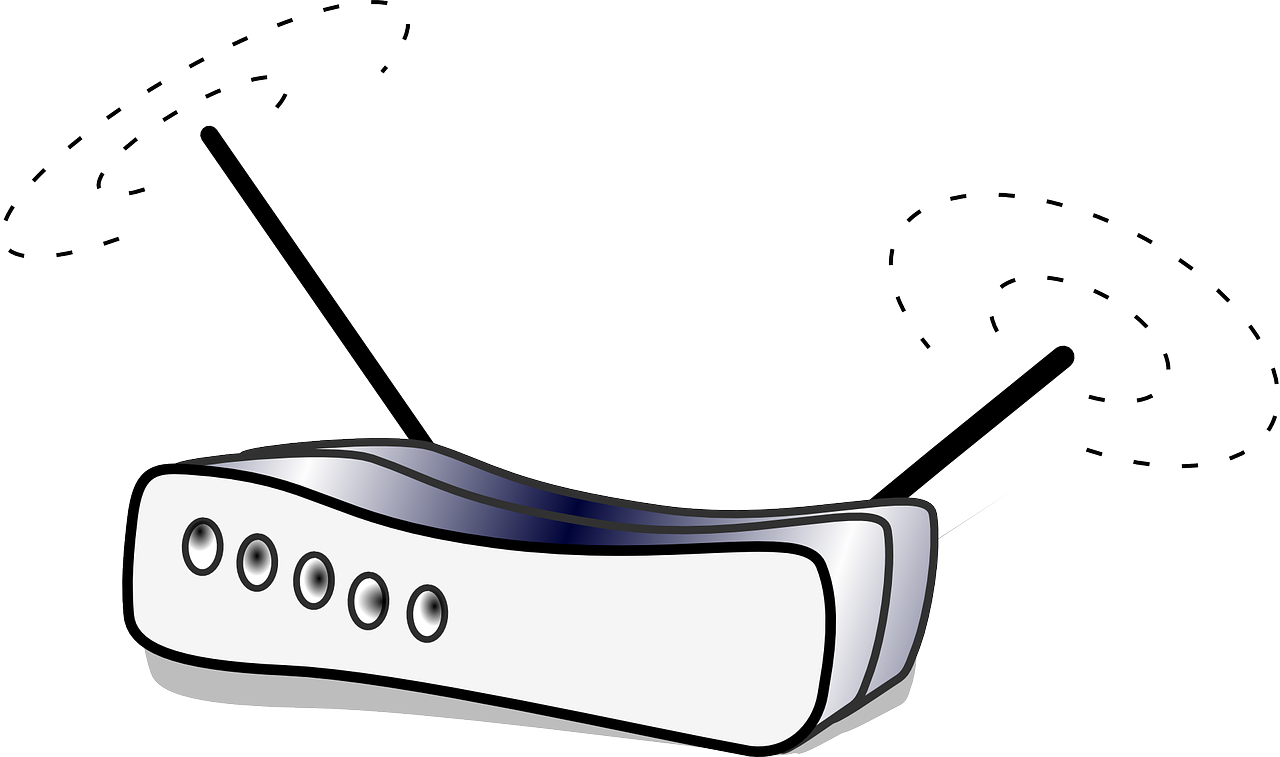Can the WiFi Owner See What I’m Browsing?
Last updated on April 27th, 2022 in VPN
 WiFi is a great way to stay connected, but you might be wondering can the WiFi owner see what sites I’m browsing? The answer? Yes! They may not like it either in many countries we’ve seen WiFi Sense use tracking software that revealingly tracks user behavior and location data without their knowledge or consent (not cool).
WiFi is a great way to stay connected, but you might be wondering can the WiFi owner see what sites I’m browsing? The answer? Yes! They may not like it either in many countries we’ve seen WiFi Sense use tracking software that revealingly tracks user behavior and location data without their knowledge or consent (not cool).
Table of contents
Is it possible for someone to access your browsing and more if you use their WiFi? The unpleasant reality is that unless you use a VPN to encrypt your internet traffic, the WiFi administrator may see your browsing history. In reality, with the correct tools, the WiFi provider may view your surfing history, as well as a lot of other information.
Can the WiFi owner see what sites I’m browsing? WiFi providers have access to your browser history, including every web page, you view when connected to their network. Furthermore, if the URL begins with Http:// and the website does not utilize encryption, the network administrator can use a packet sniffer like Wireshark to decipher all of the data. Personal profile information, login and password information, and so on are examples of this type of information.
However, if the URL in your browser has an additional “s,” https://, you are theoretically protected. The transmission is encrypted, so the WiFi administrators cannot view the contents of the websites, but the WiFi provider can see your browsing history and all the pages you’ve visited.
What’s even scarier than an IDS that is SSL-aware? An intrusion detection system (IDS) with the ability to monitor all your traffic and log files.
The IT team could potentially break encryption by intercepting requests, so they can see everything you do online – including which websites or articles on those pages someone else might have been looking at before him/her!
The scary part about this situation: some routers actually keep logs of IP addresses visited throughout their network–which means if there’s no forward secrecy enabled in effect when using public WiFi hotspots then entire sessions may be logged too; sometimes even containing sensitive personal information such as credit card numbers bought online.
So, you wondered can the WiFi owner see what sites I’m browsing, now it’s time to understand what exactly can they see. The following is a list of the types of information that WiFi owners may view when they use their networks:
Wifi owner can obtain the following from those who use on their phone:
These factors are sufficient for cyber thieves to target you via ransomware, phishing, or other means. It is sufficient for them to steal your identity or gain access to your bank accounts.
There’s also the issue of advertisements to consider. They can see what you bought online, as well as what you were interested in but did not purchase. They can use the information they collect to build a profile of you, and then bombard you with adverts every time you visit the internet without the security of a VPN.
 Your Wi-Fi connection (yes, even your home network) may be accessible to cybercriminals, whether you’re working remotely from a coffee shop, checking email from an airport lounge, or streaming Netflix from home.
Your Wi-Fi connection (yes, even your home network) may be accessible to cybercriminals, whether you’re working remotely from a coffee shop, checking email from an airport lounge, or streaming Netflix from home.
Hackers can compromise your online banking apps by hacking your router, spying on your Wi-Fi connection, and even eavesdropping on your chats in order to collect personal information such as credit card numbers, passwords to social media accounts, and even eavesdropping on your discussions.
While Wi-Fi hacking isn’t as frequent as ransomware or other forms of social engineering, it remains a serious threat. A hacker, for example, used an open router to acquire the personal information of 50 million T-Mobile subscribers. Router hacking isn’t simply a problem for big organizations; it’s also a problem for individuals.
To obtain access to your router’s internal settings, hackers can try hundreds of different password combinations. Hackers will alter your Wi-Fi password and keep you out of your home Wi-Fi if your password is cracked.
Wi-Fi hackers will obtain access to your router and change its settings by using the manufacturer’s default admin password. As a result, you should always update the default password on your router. You should also make your own SSID (wireless network name). Never use the SSID that comes with your router.
An unpatched firmware vulnerability allows cybercriminals to gain access to the router’s internal settings. Whether or whether you use a firewall, your home is vulnerable to being hacked by a skilled cybercriminal if you have an internet connection.
Using a new cyber danger, cybercriminals can also lure you into visiting harmful websites. A hacker may, for example, undertake a DNS hijacking attack by hacking into your router and modifying the DNS settings to divert your traffic to dangerous phishing websites.
The point of incognito mode (or any of its variants) is to keep your web browsing private from other individuals who use the same device as you. That’s why it doesn’t save a lot of cookies and deletes your browsing history when you close the browser or tab.
Incognito mode, on the other hand, will not conceal your internet activity. If network administrators, ISPs, and hackers want to, they can easily monitor all of your internet chats.
The thing is Incognito mode does not hide your browsing because the IP address remains unchanged. It just doesn’t let any browser record history on you, but that doesn’t mean they won’t have access to some information about what sites are being visited or who was doing so when through their own networks of course!
Can the WiFi owner see what sites I’m browsing? Certainly.
If you’re concerned about WiFi administrators monitoring your internet activities, simply connect to a network using a VPN.
VPNs are internet services that mask your IP address and Internet traffic if you’re not familiar with them. A VPN, in essence, creates an encrypted tunnel between your device and the VPN’s servers. Nobody can keep track of the information that passes through the tunnel.
The best thing is that a VPN will preserve your privacy even if you use insecure WiFi networks that are monitored by hackers, or if you connect to a false cybercriminal-run WiFi hotspot by accident. Of course, you should also use anti-virus and anti-malware software.
A network administrator or hacker will only see the following at most:
DNS Leaks, on the other hand, can be a hindrance.
You can wind up with DNS leaks if you just choose a VPN at random and don’t take the effort to make sure it’s a dependable provider.
Your DNS queries (what you search up on the internet) leak out of the VPN tunnel at this point. So, even if you’re using a VPN, the WiFi administrator can see everything you’re doing online.
Fortunately, you can avoid this issue by using a service like DNSLeakTest.com to test your VPN connections. Using a VPN with DNS leak prevention is also beneficial.
HideIPVPN offers a VPN service with military-grade encryption, and high-speed servers with unlimited bandwidth.
Our service comes with shared IP addresses so that your activity can never be tied to one particular user, further protecting your privacy.

We also offer DNS leak protection, a Kill Switch, the latest VPN protocols, and a guaranteed no-log policy.
Every purchase you make comes with a 30-day money-back guarantee.
Without getting into the technical mumbo jumbo, yes they can.
However, what can a WiFi administrator see?
WiFi administrators can observe what material you viewed or read if you browse HTTP websites. They will still know what websites you visited if you surf HTTPS websites.
Anyone who monitors your WiFi traffic, such as hackers, will be able to see what you’re doing.
Fortunately, you may address this issue by utilizing a VPN. It will encrypt all of your data, making it completely unhackable.